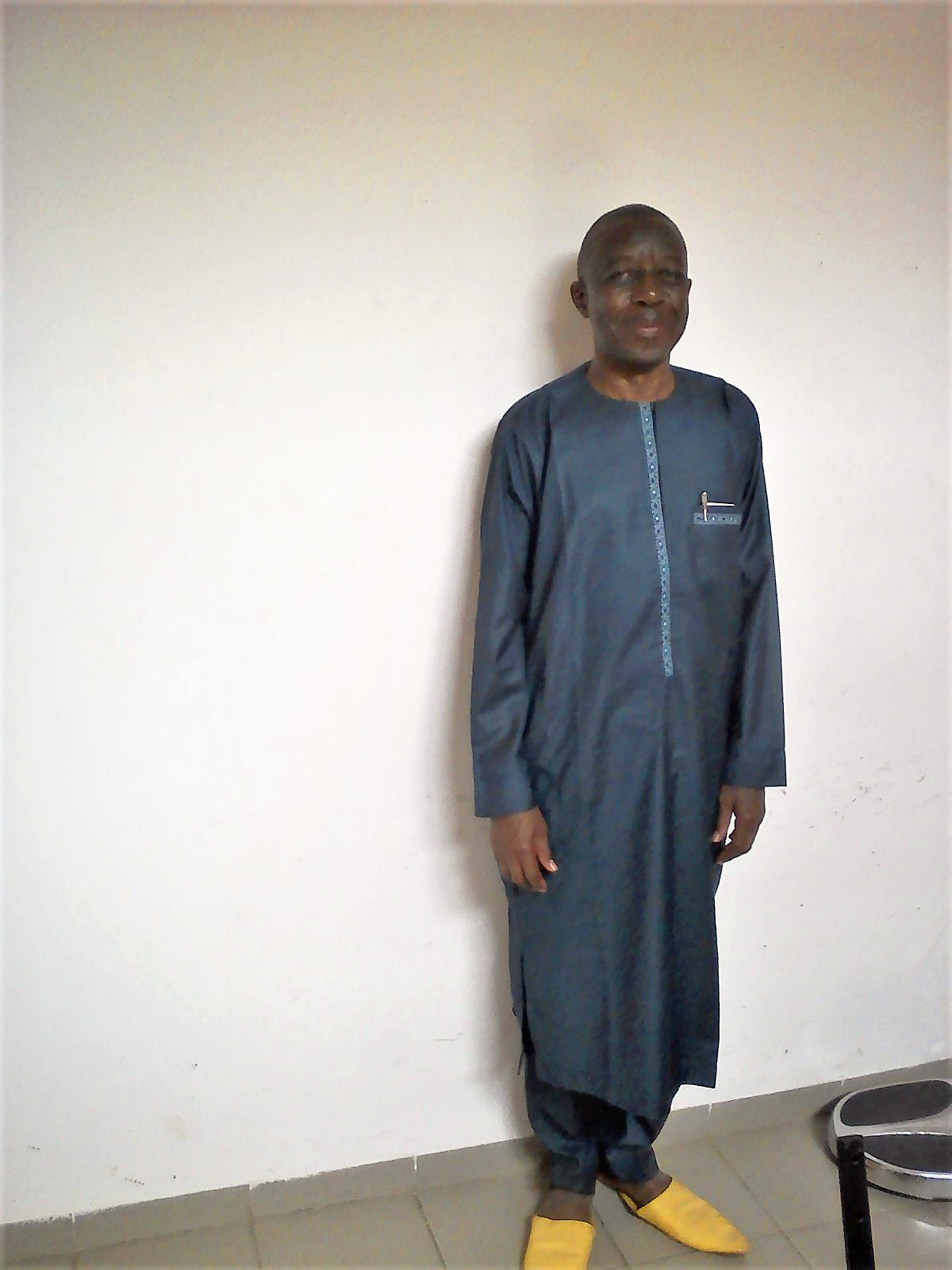At first glance, he seems quiet and unassuming. But upon closer inspection, the older man with close-cropped hair wears a knowing smile and pointed yellow shoes. For Malick, a 64-year-old father from Touba, the details make all the difference.
A Second Opinion
Malick’s medical journey began all the way back in 1978, when he was first diagnosed with an ulcer. For the next 37 years, he relied on the same treatment to relieve his symptoms. Then in 2015, he started feeling bloated and his stomach pain grew worse. His doctor in Touba wanted to schedule him for an exploratory surgery but, at the urging of his children, Malick traveled the 180km to Hospital Principale in Dakar for a second opinion.
Breaking the News
The surgeon in Dakar performed a biopsy and sent the tissue sample to France for testing. When the results came back in February 2016, Malick was diagnosed with gastrointestinal stromal tumors (GIST). He recalls breaking the news to his family in stages: “I informed my son first and he was very worried because the word ‘cancer’ itself is a hard pill to swallow. For my other kids and close family, I did not use the world ‘cancer’ in the beginning…I did not want them to pity me…once you say you have cancer, automatically the word ‘death’ comes to mind.”
His “Last Mile” to Treatment Access
Following his diagnosis, Malick’s treating physician told him he could get the medication he needed for free through The Max Foundation: “He informed me about the cost of this medication in the market but I did not believe him at first…my current financial situation would not be able to sustain the cost so the fact that I receive it for free is a big relief.” Malick began receiving treatment through Max Access Solutions in March of 2016. But even then, he still had a decision to make: he could make a recurring 180km journey between Touba and Dakar for monitoring and picking up medication, or simply move to Dakar. Thankfully, Malick’s employer was able to transfer him to their location in the capital city, but many of the patients we support are not so fortunate.
How You Can Help
At The Max Foundation, we work to bridge gaps in cancer treatment access with Max Access Solutions: our comprehensive patient-centered model for drug donation. Thanks to the generosity of our pharmaceutical partners, the drugs themselves are made available at no cost, but an enormous amount of work is still required to bridge the “last mile” and make them accessible to people in need.
Those “last mile” efforts take many forms. For the patients we support, it’s often a recurring journey to and from a clinic or hospital. For our partners and team members, the “last mile” takes place in customs offices and at ministries of health, on bus-rides to laboratories and site visits to remote clinics. Most importantly, our “last mile” efforts take the form of patient support; working to educate local communities, provide close emotional support, and reduce the stigma surrounding cancer.
With help from supporters like you, we can continue to grow these “last mile” efforts and bridge the gaps in treatment access for people in Africa and beyond. Together, we can realize a world where everyone can face cancer with dignity and hope.

